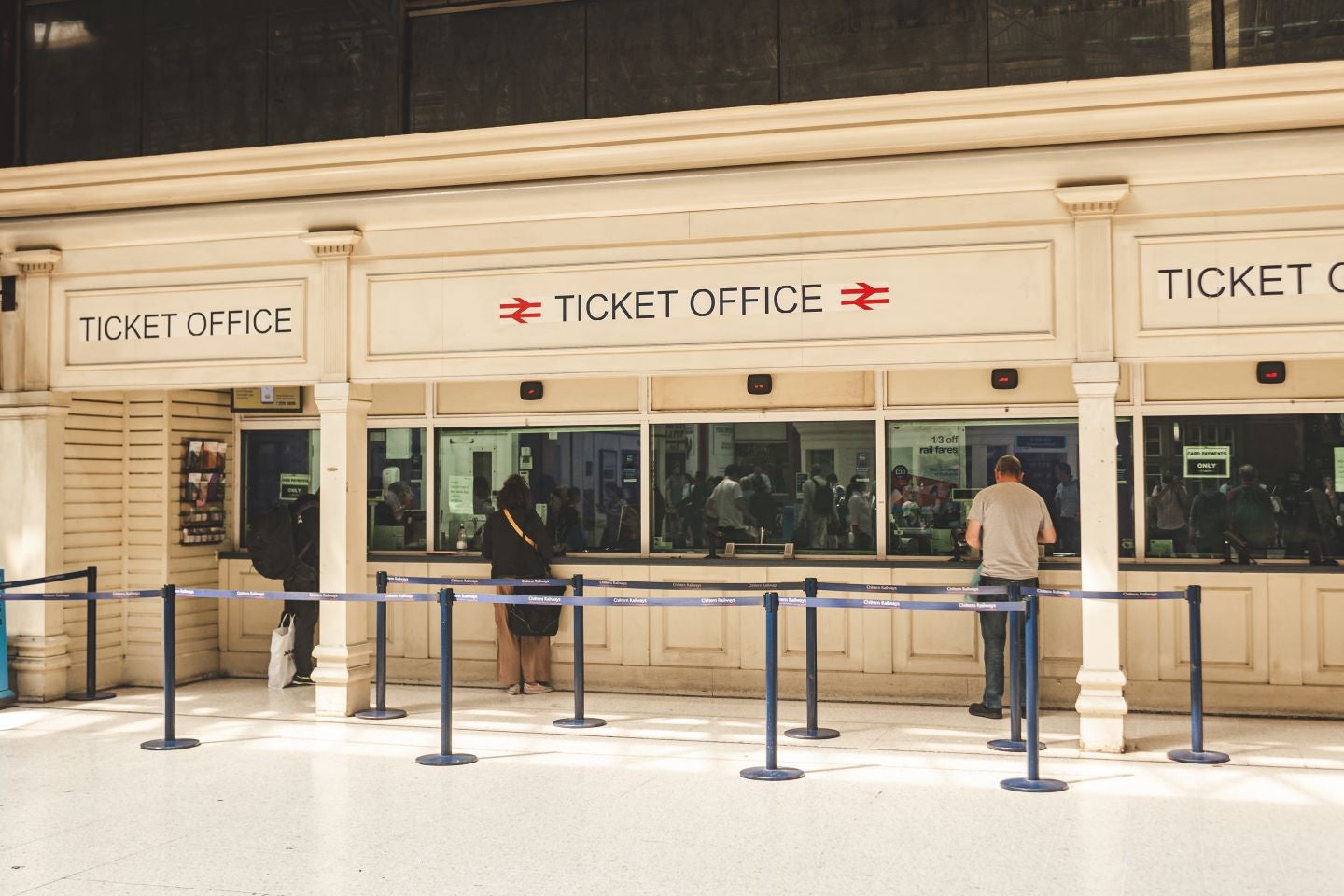
The public consultation over the closing of over 1000 ticket offices in the UK concluded on 1 September, revealing a high level of unhappiness from the public.
The consultation period, which received over 680,000 responses, was extended from its original end date of 26 July to give individuals more time to participate.
Train operators announced the initial three-week public consultation, which was monitored by passenger watchdogs Transport Focus and London Travelwatch.
As stated by the RMT, the watchdogs can accept or reject the railway company’s suggestions at the end of the public consultation and by 31 October. If the suggestions are rejected, a decision will be made by the Secretary of State.
Mick Lynch, RMT general secretary, emphasised that the outpouring of support to keep ticket offices open served to highlight the public’s outrage at the dehumanisation of the train network.
“We hope that the watchdogs will reflect on the huge opposition to this monumental act of social vandalism and defend a universal public service which should be available to all,” said Lynch.

US Tariffs are shifting - will you react or anticipate?
Don’t let policy changes catch you off guard. Stay proactive with real-time data and expert analysis.
By GlobalData“The drive to close ticket offices in the name of profits is clearly a political decision of this out-of-touch Tory government and it must be stopped.”
The consultation was in response to part of an industry-wide plan that would see ticket office employees’ roles shift to working on station platforms and concourses, where they would be closer to passengers.
The UK Government, in response to backlash from the policy, has stated that passengers are set to benefit from new technologies included in travel apps, which will offer “cheaper, safer and more accessible journeys”.
Technology and decarbonisation minister Jesse Norman emphasised how new technologies being introduced will transform the way people travel and particularly help vulnerable communities.
Norman said: “With the new code of practice, the Department for Transport (DfT) is encouraging app providers to make the most of the new technology, helping to ensure potentially vulnerable groups and communities are not left behind”.
Various critiques of the Government policy centre around the devastating effects the closing of ticket offices will bring to vulnerable groups across the region.
The consultation brought up concerns featuring accessibility, safety and security, issues with ticket machines, and the wholesale de-staffing of stations.
“Government and industry claim that these proposals represent a step forward in terms of accessibility and will bring benefits for disabled passengers. The coalition of groups that have signed our letter of objection, however, shows that this could not be further from the truth,” said Caroline Stickland, CEO of Transport for All.
“In it, we make irrefutably clear that these closures will lock millions of disabled people out of the rail network, reversing years of progress to make transport more accessible, and likely violating the Equality Act on multiple counts.
“We stand together against these discriminatory reforms and will continue to fight for as long as it takes.”



